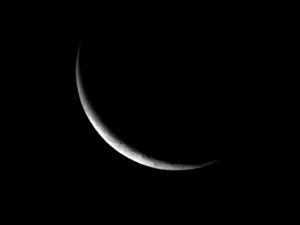 Ramadan is a Holy Month for Muslims. The ninth month of the Islamic calendar (which is lunar, not solar), it begins tomorrow, July 20, 2012.
Ramadan is a Holy Month for Muslims. The ninth month of the Islamic calendar (which is lunar, not solar), it begins tomorrow, July 20, 2012.
Significantly, the first verses of the Qu’ran were revealed to the Prophet Muhammad during this month in 610 CE.
Fasting during Ramadan is one of the five fundamental religious duties. It is characterized as a period of increased religious devotion and prayer, fasting during daylight hours, charitable contributions and efforts at self-accountability.
During Ramadan, breakfast, called “suhur”, is served before. A meal called “iftar” takes place after sunset, and traditionally includes lentils or other pulses — edible seeds of plants in the legume family, including chickpeas. Many Muslims begin iftar by eating dates, as the Prophet used to do.
Observance of Ramadan is mandated in the Qu’ran, Surah 2, Ayat 185:
Ramadhan is the (month) in which was sent down the Qur’an, as a guide to mankind, also clear (Signs) for guidance and judgment (Between right and wrong). So every one of you who is present (at his home) during that month should spend it in fasting, but if any one is ill, or on a journey, the prescribed period (Should be made up) by days later. Allah intends every facility for you; He does not want to put to difficulties. (He wants you) to complete the prescribed period, and to glorify Him in that He has guided you; and perchance ye shall be grateful. [English translation from Islamicity.com]
Ramadan does not take place at the same time each year, because the lunar cycle doesn’t match the solar calendar in contemporary use. Last year, for example, Ramadan began on August 1, 2011.
The Holy Month ends with “Eid ul-Fitr”, a holiday on the first day of the month following Ramandan (which is named Shawwal). On the contemporary calendar, this will be August 19, 2012.
Fasting is prescribed from dawn to sunset during Ramadan, and this means no water or food. Other prohibitions during these hours include smoking and sexual intercourse.
Charity is a natural part of Ramadan, as the experience of hunger during the daily fasting calls to mind the suffering of the poor. Muslim communities often schedule special fundraising during this month, donate clothing and restock food pantries.
Muslims often read the entire Qu’ran during Ramadan, scheduling segments to conclude on Eid ul-Fitr.
Of course, there are exceptions to the daily fasts. Those with severe medical conditions should not take part. Pregnant and breastfeeding women, infants and children, the elderly and the infirm also are discouraged. Travelers can choose to “make up” fasting days when they’re no longer on the road.
